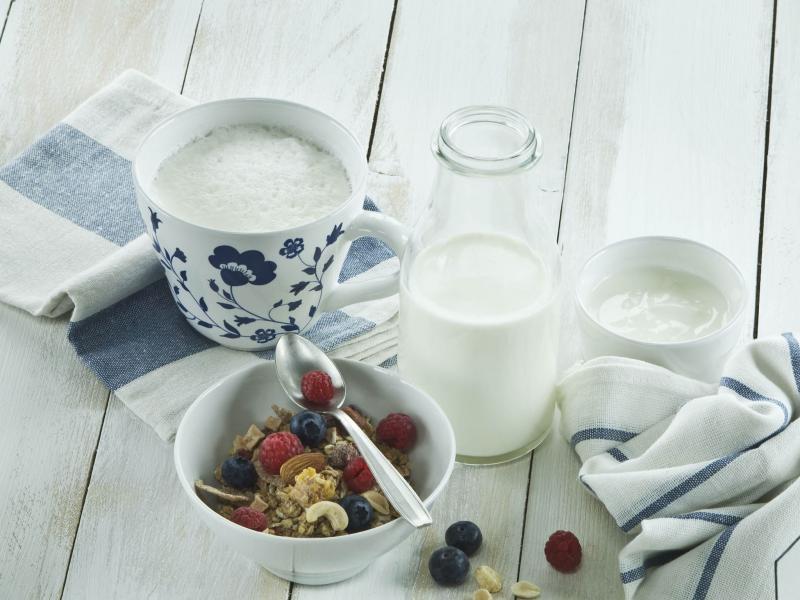Are milk alternatives like soy and almond really better than cow's milk?
There are a number of alternatives to cow's milk that are available, but what are the pros and cons?

Once upon a time they were rare products largely confined to health food stores; now alternatives to cow’s milk fill the shelves of even the tiniest corner shops.
The sale of alternatives to dairy milk, including soy, almond and hazelnut, has spiked in the past five years, with 42 million litres sold in the UK each year.
A combination of a global rise in lactose and cow’s milk protein allergies and the growing popularity of vegan and other alternative lifestyles have contributed to the trend against cow’s milk, according to Abigail Wilson, a spokesperson for the British Dietetics Association and chief executive of well-being firm Isos Health. Clever marketing that presents such drinks as a healthier option has also helped, she says.
Cow’s milk’s health credentials have also been muddied by a recent study in the BMJ, which suggested it may not protect against bone fractures and could double the risk of premature death in women, as well as debates over whether full-fat or semi-skimmed is the best choice.
So, do the alternatives have any health benefits above those afforded by the UK’s favourite: semi-skimmed pasteurised cow’s milk?
Among the most popular non-dairy alternatives are soy drinks. These contain fewer calories and less saturated fat, but a similar level of protein, according to Dr Alan Sneddon of the University of Aberdeen’s Rowett Institute of Nutrition and Health.
It can also reduce the risk of developing hormone-related diseases such as breast and prostate cancers, and can ease menopausal symptoms, says Dr Joanne Maycock of the Leeds University School of Food Science and Nutrition.
Almond milk, which overtook soy milk as the most popular dairy alternative in Waitrose last year, also contains few calories and no saturated fats. However, its protein levels do not match those of cow’s milk’s. The same goes for hazelnut milk, which has a similar level of calories to cow’s milk but less protein.
Rice milk, meanwhile, has very little saturated fat, but little or no protein or the heart-protection given by nuts.
Overall, such drinks lack essential nutrients including calcium, B-vitamins and iodine unless they are fortified by manufacturers. And while the body easily absorbs the nutrients in cow’s milk, they can easily get trapped at the bottom of the carton in alternatives.
It is easy to be overwhelmed by the range of products to choose from. But it comes down to how it complements a person’s individual lifestyle, as no milk is wholly healthy or unhealthy, says Dr Sneddon.
Be sure that if you do opt for non-dairy alternatives, they are fortified in diets with key nutrients such as calcium, iodine, riboflavin and vitamin B12, advises Dr Sneddon.
His honest conclusion? “I’m not really sure why alternative milks are becoming more popular, but I personally wouldn’t want to replace them totally in place of cow’s milk.”
Join our commenting forum
Join thought-provoking conversations, follow other Independent readers and see their replies
Comments